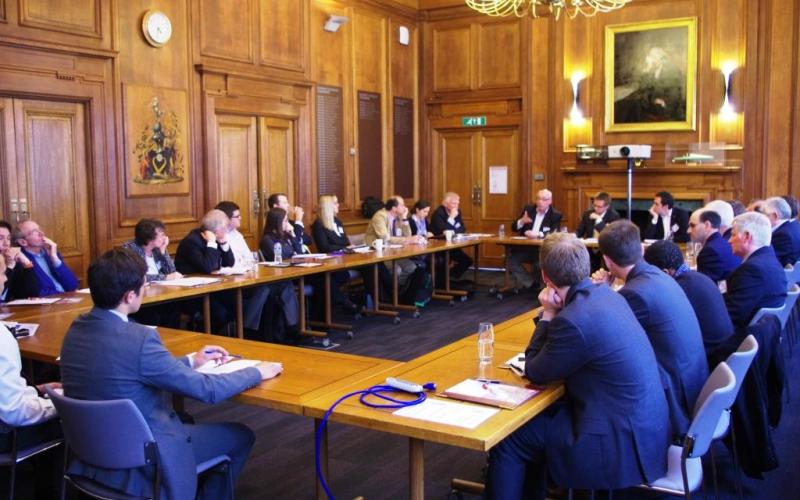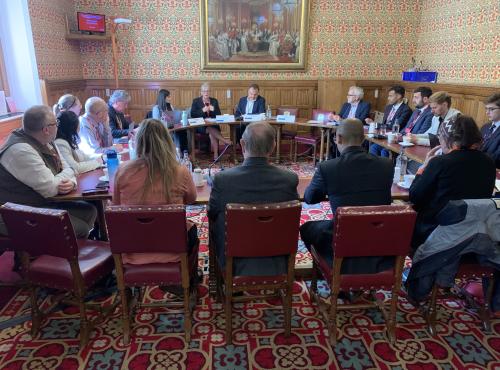Position Paper: Accomplishing the Energy Efficiency Mission
Following a Carbon Connect roundtable on energy efficiency with Dr Alan Whitehead MP, DECC, UK Energy Research Centre and our members, we launched a position paper setting out nine recommendations to help Government meet its energy efficiency mission. Topics covered include Electricity Market Reform, energy efficiency audits, voluntary commitments and industrial sector decarbonisation roadmaps. The paper was launched at our Summer Reception, held in Parliament on the 8th July 2013.
The views expressed here are those of Carbon Connect and do not necessarily represent the views of its individual members or organisations that took part in the roundtable.
The Energy Efficiency Mission
The Coalition Government has a mission to seize the energy efficiency opportunity, accelerating the deployment of twenty-first century energy saving measures through:
- connecting energy efficiency knowledge and technologies to finance seeking strong returns
- supporting energy efficiency innovation
- harnessing the power of improved energy use information, driving its availability and disclosure
- encouraging collective action to act on this new and better information
- Electricity Market Reform
- Products Policy and Labelling
- Consumer Attitudes
- Energy Efficiency Audits
- In-use Factors
- Voluntary Commitments
- Decarbonisation Roadmaps





